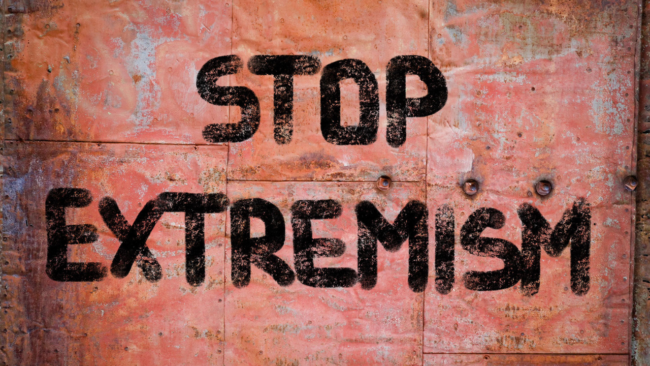Inclusive Voices Unite
Harnessing the Power of Victims, Survivors, and Former Extremists in Prevention Campaigns
By Fabian Wichmann.
Experts convened to discuss the integration of victims, survivors, and former extremists in prevention campaigns. By sharing their experiences, these individuals humanize the consequences of extremism and offer valuable insights. The meeting focused on establishing guidelines for effective and sensitive engagement while ensuring media attention is handled appropriately.
The Power of Personal Stories
In the context of extremist ideologies, disinformation, and conspiracy narratives, people often tend to adopt these ideologies and narratives from an emotional standpoint and a desire for belonging. It is well-known that extremist ideologies, disinformation, and conspiracies deliberately manipulate emotions. Against this backdrop, it appears meaningful to incorporate emotionally charged content in preventive measures to combat violent extremism and radicalization (P/CVE). Two key groups play an important role in this regard: former extremists who have detached themselves from radical ideologies, and victims and survivors of terrorism who have directly experienced the impact of extremist violence. The significance of testimonies from these two groups was emphasized during a recently held meeting, as their participation in prevention campaigns can bring about transformation and offer new perspectives.
The meeting focused on addressing several key questions, such as:
- When and how could the narratives of the biographical experiences of survivors and former extremists be used effectively and sensitively for P/CVE? And when not?
- What sensitivities of both groups (formers and survivors) should be paid attention to when including them in P/CVE interventions?
- How can we ensure the prevention of secondary trauma when including victims and survivors in P/CVE campaigns?
- How to deal with media attention and publicity surrounding campaigns?
- What is a realistic goal for P/CVE campaigns when involving victims/survivors and formers?
- What ethical standards should be adhered to when including victims/survivors and/or formers into P/CVE interventions/campaigns?
- In what ways could both formers and victims/survivors be included in a single P/CVE intervention/campaign? What extra considerations does this bring? Would it bring synergy, or would it only be more complicated?
Empowering Victims, Survivors, and Former Extremists in P/CVE Campaigns
Testimonies of victims/survivors can bring several potential added values to P/CVE efforts, such as humanizing the consequences of extremist violence or terrorist acts, fostering empathy and resilience of at-risk individuals, creating awareness of the impact of violent extremism, and advocating/influencing policies. On the other hand, involving formers can also be an effective way to add value to P/CVE efforts. First-hand insights by former extremists can add authenticity and credibility to preventive campaigns. Moreover, formers can be credible and believable messengers of alternative narratives, or they can be role models and have a positive impact on individuals at risk of radicalization.
The event, held by the Communication and Narratives (C&N) Working Group of the Radicalisation Awareness Network (RAN), aimed to determine how and when former extremists and victims/survivors can be appropriately involved in preventive campaigns in the field of countering violent extremism (P/CVE). The focus was on utilizing the biographical experiences of terrorism victims and survivors, as well as former extremists. Collaboration with practitioners and affected individuals was sought to enhance preventive campaigns, with an emphasis on establishing a common foundation for potential guidelines that can be implemented in practice. The experiences of practitioners from various European countries were consolidated and taken into account, while adhering to the principle of ‚do no harm‘ and ensuring the well-being of victims, survivors, and former extremists.
Transforming Trauma into Change
Furthermore the meeting brought together former extremists and victims/survivors, creating an exciting and sensitive environment. The discussions and outcomes proved to be extremely important and fulfilling, providing a unique opportunity to gain firsthand insights and leverage the knowledge and experiences of those directly affected to develop more effective prevention strategies and guidelines. The openness and dialogue among participants were impressive, contributing to the creation of a safe and supportive environment. It was a crucial step towards developing concrete guidelines for preventive campaign work utilizing the biographical experiences of terrorism victims, survivors, and former extremists. The results and insights will be summarized in an upcoming paper, which aims to serve as a valuable resource for professionals and practitioners in designing effective and ethically sound prevention campaigns that meet the needs of all stakeholders involved.
The working group of the Radicalisation Awareness Network represents a significant advancement in the field of P/CVE work. With the integration of perspectives from former extremists and victims/survivors in preventive campaigns opens up new possibilities in combating radicalization and extremism. We extend our gratitude to all participants who contributed to the success of this meeting and encourage everyone interested in this topic to await the upcoming paper: „Preventive campaigning using biographical experiences from both victims and survivors of terrorism as well as former extremists.“
More about Formers in C/PVE
Combating Violent Extremism: Insights from Former Right-Wing Extremists


